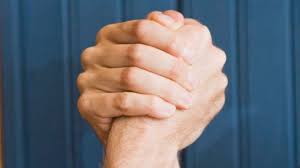
It’s always amusing to hear people say, “My God. I sound just like my mother.” Or father, for that matter. We grow up vowing that we have learned from what we disliked as children growing up, but sometimes, when cast into the role of parents ourselves, we instinctively begin a shadow dance with our pasts.
The power of childhood is greater and darker than we know. One extreme example lies in the behavior of the aged on their deathbeds. If they are in the throes of pain or delirium, they often call out for long-deceased mother or father. This with a lifelong married partner at their side, even. Such is the powerful imprint of childhood, the wild woods we unconsciously navigate in times of blind stress.
Foreshadowing such behavior are the sometimes unchecked instincts learned in our childhoods not only as sons and daughters, but as brothers and sisters. It is this renegade instinct that the poet Patrick Phillips wrestles with in the following poem, wherein the speaker’s two sons become disturbing echoes of the speaker’s own childhood.
The beauty of the poem? The concrete subject, a wrestling move, lends more than one meaning to its abstract title. It’s one of the things good poetry does. See if you can’t find more than one way to interpret the word “mercy,” as seen through a childhood darkly:
“Mercy”
by Patrick Phillips
Like two wrestlers etched
around some ancient urn,
we’d lace our hands, then wrench
each other’s wrists back
until the muscles ached
and the tendons burned,
and one brother or the other
grunted mercy—a game
we played so many times
I finally taught my sons,
not knowing what it was,
until too late, I’d done:
when the oldest rose
like my brother’s ghost,
grappling with the little
ghost I was at ten—
who cried out Mercy!
in my own voice Mercy!
as I watched from deep
inside my father’s skin.
